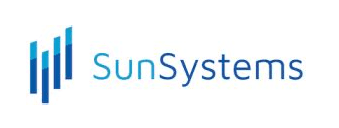Erp sun systems
Welcome, fellow business enthusiasts! Today, we are diving into the world of ERP Sun Systems solutions and all the incredible benefits they offer. Whether you’re a small startup or a large corporation, implementing an ERP system can streamline your operations, increase efficiency, and boost overall productivity. Let’s explore how these innovative solutions can revolutionize the way you do business.
Overview of ERP Sun Systems
ERP Sun Systems is a comprehensive enterprise resource planning software that helps businesses streamline their operations, improve efficiency, and increase productivity. This software integrates various functions such as accounting, human resources, customer relationship management, supply chain management, and inventory management into one unified system.
One of the main advantages of ERP Sun Systems is its ability to provide real-time data and analytics, allowing businesses to make informed decisions quickly. With this software, companies can easily track their financial performance, manage their workforce effectively, and monitor their supply chain, all from one centralized platform.
Another key feature of ERP Sun Systems is its scalability. Whether you are a small startup or a large enterprise, this software can be tailored to meet your specific needs and grow with your business. You can choose to add or remove modules as required, ensuring that you only pay for the features that you need.
Furthermore, ERP Sun Systems offers a user-friendly interface that is easy to navigate, making it simple for employees to learn and use. This reduces training time and improves employee adoption rates, ultimately leading to a higher return on investment for the business.
Additionally, ERP Sun Systems is known for its robust security measures, protecting sensitive business data from unauthorized access or breaches. With built-in encryption and authentication protocols, this software ensures that your information is safe and secure at all times.
In conclusion, ERP Sun Systems is a powerful and versatile solution for businesses looking to streamline their operations and improve efficiency. From real-time data analytics to scalability and security, this software offers a wide range of features that cater to the needs of modern enterprises. With ERP Sun Systems, businesses can stay competitive, drive growth, and achieve their goals with ease.
Key Features of ERP Sun Systems
ERP Sun Systems offer a wide range of features that make them a valuable asset for businesses of all sizes. One of the key features of ERP Sun Systems is their ability to streamline business processes. By integrating all aspects of a company’s operations into one centralized system, ERP Sun Systems can help eliminate the need for manual data entry and reduce the risk of errors. This can lead to increased efficiency and productivity, allowing employees to focus on more strategic tasks.
In addition to streamlining processes, ERP Sun Systems also offer robust reporting and analytics capabilities. These systems can provide real-time insights into various aspects of a company’s operations, allowing decision-makers to make informed choices that can drive business growth. With customizable dashboards and reports, users can easily track key performance indicators and monitor trends within their organization.
Another key feature of ERP Sun Systems is their scalability. As businesses grow and evolve, their operational needs may change. ERP Sun Systems are designed to grow with a company, allowing for easy customization and integration of new modules as needed. This flexibility ensures that businesses can adapt to changing market conditions and stay ahead of the competition.
Moreover, ERP Sun Systems offer enhanced security features to protect sensitive data. With built-in encryption and access control measures, these systems help safeguard against cyber threats and unauthorized access. This level of security is crucial for businesses that handle confidential information, such as customer data or financial records.
Furthermore, ERP Sun Systems provide seamless integration with third-party applications and tools. This integration allows businesses to leverage their existing software investments and enhance the functionality of their ERP system. Whether it’s incorporating CRM software or e-commerce platforms, ERP Sun Systems can easily connect with other systems to create a cohesive digital ecosystem.
Lastly, ERP Sun Systems offer cloud-based deployment options, enabling businesses to access their data from anywhere at any time. This accessibility is particularly beneficial for companies with remote or distributed teams, allowing employees to collaborate effectively and access real-time information regardless of their location. Cloud deployment also ensures automatic updates and maintenance, reducing the burden on IT staff and ensuring that the system is always up-to-date.
In conclusion, ERP Sun Systems are a powerful tool for businesses looking to streamline their operations, improve reporting capabilities, and enhance security. With features such as scalability, integration, and cloud deployment, these systems can help companies stay competitive in today’s fast-paced business environment. Whether you’re a small start-up or a large enterprise, ERP Sun Systems can provide the functionality and flexibility you need to succeed.
Benefits of Implementing ERP Sun Systems
ERP Sun Systems offer a wide range of benefits to businesses of all sizes. Here are some of the key advantages of implementing this comprehensive software solution:
1. Streamlined processes: One of the biggest benefits of ERP Sun Systems is the ability to streamline and integrate various business processes. By centralizing data and automating tasks, businesses can eliminate manual processes and reduce errors, leading to increased efficiency and productivity.
2. Improved visibility: With ERP Sun Systems, businesses gain real-time visibility into their operations. This means that decision-makers have access to up-to-date information on everything from inventory levels to financial data, allowing for better decision-making and more effective planning.
3. Enhanced reporting and analytics: ERP Sun Systems come equipped with robust reporting and analytics capabilities that help businesses make sense of their data. By generating detailed reports and analyzing key metrics, businesses can gain valuable insights into their performance and identify areas for improvement. This data-driven approach can lead to better decision-making and drive business growth.
4. Increased collaboration: ERP Sun Systems facilitate collaboration among different departments within an organization. By providing a central platform for sharing information and communicating effectively, employees can work together more efficiently and effectively, leading to improved business outcomes.
5. Cost savings: Implementing ERP Sun Systems can lead to cost savings in the long run. By streamlining processes, reducing errors, and improving efficiency, businesses can lower operational costs and increase profitability. Additionally, the ability to make data-driven decisions can help businesses allocate resources more effectively and avoid unnecessary expenses.
6. Scalability: ERP Sun Systems are designed to grow with your business. Whether you’re a small start-up or a large enterprise, these systems can scale to meet your needs. This scalability ensures that your business can continue to thrive and adapt to changing market conditions without the need for a complete software overhaul.
In conclusion, ERP Sun Systems offer a wide range of benefits to businesses looking to streamline their operations, improve visibility, and drive growth. From enhanced reporting and analytics to increased collaboration and cost savings, these systems provide businesses with the tools they need to succeed in today’s competitive marketplace.
Common Challenges in Using ERP Sun Systems
1. Integration Issues: One of the common challenges faced by companies using ERP Sun Systems is integration issues. Integrating the ERP system with other existing systems within the organization can be a complicated process. This can lead to data inconsistencies, communication problems, and delays in decision-making. It is essential for companies to carefully plan and execute the integration process to ensure a smooth transition and seamless operation.
2. User Resistance: Another significant challenge in using ERP Sun Systems is user resistance. Employees may be resistant to change, especially when it comes to adapting to a new system. They may feel overwhelmed by the complexity of the ERP system or fear that it will replace their jobs. To overcome this challenge, companies must invest in proper training programs, provide support to users, and communicate the benefits of the ERP system to encourage user adoption.
3. Customization Costs: Customizing the ERP Sun System to meet specific business requirements can be expensive. Companies may need to invest in additional modules, hire consultants, or purchase third-party integrations to tailor the system to their needs. These customization costs can quickly add up, making it challenging for some companies to afford an ERP solution that fully meets their requirements. It is crucial for companies to carefully evaluate their customization needs and budget accordingly during the implementation process.
4. Lack of Skilled Personnel: Companies may face challenges in using ERP Sun Systems due to a lack of skilled personnel. Implementing and managing an ERP system requires specialized knowledge and expertise. Companies may struggle to find employees with the necessary skills to configure the system, troubleshoot issues, and optimize its performance. This can result in inefficiencies, errors, and downtime in ERP operations. To address this challenge, companies can invest in training programs for existing employees, hire external consultants, or partner with ERP vendors to access expert support and resources.
Best Practices for Maximizing the Potential of ERP Sun Systems
ERP Sun Systems are powerful tools that can greatly enhance the efficiency and effectiveness of an organization. In order to fully leverage the capabilities of these systems, it is important to follow best practices that will help maximize their potential. Below are some key strategies that organizations can implement to get the most out of their ERP Sun Systems:
1. Invest in Training and Education: One of the most important factors in successfully utilizing ERP Sun Systems is ensuring that employees are properly trained on how to use the system. Investing in comprehensive training programs and providing ongoing education opportunities can help employees become more proficient in using the system, leading to increased productivity and better decision-making.
2. Customize the System to Fit Your Business Needs: Every organization is unique, and therefore it is important to tailor the ERP Sun System to meet the specific needs of your business. This may involve customizing certain modules or functionalities within the system to align with your business processes and goals. By doing so, you can ensure that the system is working in harmony with your organization’s objectives.
3. Regularly Update and Maintain the System: ERP Sun Systems are constantly evolving, with new updates and features being released regularly. It is important to stay up-to-date with these changes and ensure that your system is regularly updated to take advantage of new functionalities and enhancements. Additionally, proper maintenance of the system, such as regular backups and security updates, is essential to prevent any disruptions in system performance.
4. Utilize Reporting and Analytics Tools: ERP Sun Systems come equipped with powerful reporting and analytics tools that can provide valuable insights into your organization’s performance and operations. By utilizing these tools effectively, you can access real-time data, identify trends, and make more informed decisions that can drive business growth. It is important to train employees on how to use these tools and encourage them to regularly analyze and interpret the data provided.
5. Foster Collaboration and Communication: One of the key benefits of ERP Sun Systems is their ability to centralize data and streamline communication across different departments within an organization. To maximize the potential of these systems, it is important to foster a collaborative and communicative environment where employees are encouraged to share information and work together towards common goals. This can help break down silos, improve cross-functional collaboration, and enhance overall productivity.
In conclusion, by following these best practices, organizations can maximize the potential of their ERP Sun Systems and drive greater efficiency and success within their operations. Investing in training, customizing the system, staying updated with new features, utilizing reporting tools, and fostering collaboration are essential strategies that can help organizations make the most out of their ERP Sun Systems.







